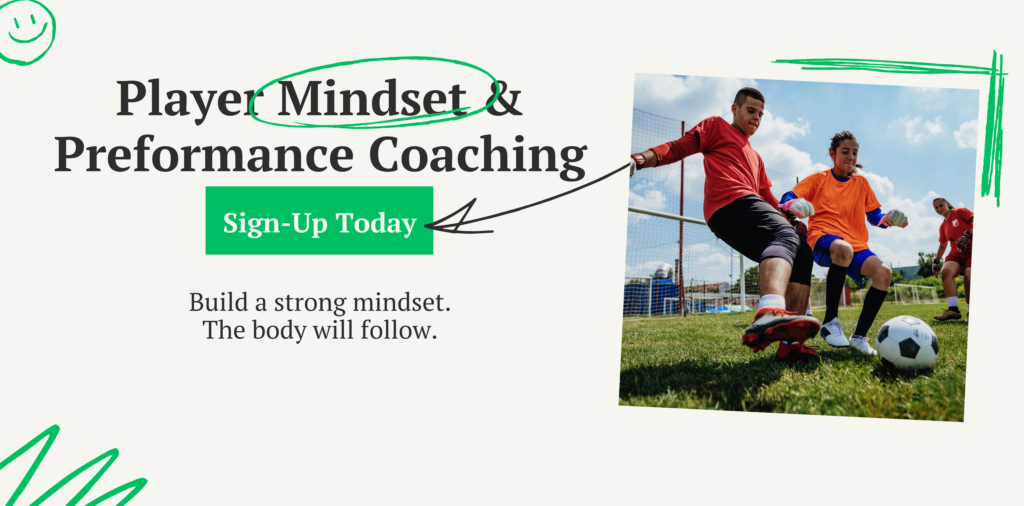Setting goals might not be everyone’s cup of tea, but in soccer, just like in life, they play a pivotal role in shaping our path to success. As we venture into 2024, it’s essential to reflect on the power of goal setting, especially in a dynamic and competitive sport like soccer.
The Power of Goal Setting
In soccer, goal setting isn’t just about scoring points; it’s about setting a clear direction and taking control of our future on and off the field. Whether you’re a player, coach, or enthusiast, having well-defined goals can provide the motivation and self-confidence needed to push boundaries and achieve remarkable feats.
Raising the Bar for 2024
As we bid farewell to a challenging year, it’s natural to harbor higher expectations for the year ahead. Perhaps you’re eyeing personal milestones, team victories, or even professional advancements. Whatever your aspirations may be, setting goals that resonate with your passion for soccer is key to staying focused and driven throughout the year.
Effective Strategies for Goal Setting
To ensure your goals for 2024 are more than mere resolutions, consider adopting these effective strategies:
1. Writing Down Goals: Penning down your goals and keeping them visible serves as a constant reminder of your objectives. Whether it’s on your mirror or as your phone background, visualizing your goals daily reinforces your commitment towards achieving them.
2. Being Specific: Vague goals like “improve fitness” or “reduce coffee intake” lack clarity and make it challenging to track progress. Instead, aim for specificity by defining measurable targets and timelines. For instance, setting a goal to “increase stamina by 20% in three months” provides a clear roadmap for success.
3. Allowing Room for Failure: Anticipate obstacles and setbacks along the way, and devise contingency plans to overcome them. Remember, setbacks are not roadblocks but opportunities for growth and learning.
4. Tracking Progress: Regularly monitoring your progress allows you to stay on course and make necessary adjustments. Whether it’s maintaining a training log or using fitness apps, tracking your journey ensures you’re always aware of where you stand.
5. Rewarding Successes: Celebrate milestones and achievements along the way. Establishing rewards for reaching specific goals reinforces positive behavior and keeps you motivated throughout your soccer journey.
6. Finding a Support System: Share your goals with teammates, coaches, or friends who can provide encouragement and hold you accountable. A supportive network can make all the difference in staying committed to your objectives.
While setting goals is essential, it’s equally vital to steer clear of common pitfalls:
1. Beating Yourself Up Over Progress: Progress takes time, and setbacks are inevitable. Instead of dwelling on shortcomings, focus on staying consistent and resilient in pursuit of your goals.
2. Guessing About Progress: By being specific and tracking your progress, you eliminate the need for guesswork. Concrete data helps you assess where you are and what adjustments are needed to stay on track.
3. Expecting Perfection: Perfection is an illusion. Embrace the journey, setbacks, and all, for they are essential components of growth and success in soccer and in life.
4. Forgetting to Set Deadlines: Setting deadlines provides a sense of urgency and accountability. While it’s okay to adjust timelines based on progress, avoid making excuses and ensure your goals remain attainable yet challenging.
Taking Action Towards Your Soccer Goals
Armed with these strategies and mindful of common pitfalls, it’s time to set your sights on your soccer goals for 2021. Start by outlining your main objectives and breaking them down into actionable steps. Remember to set specific deadlines, anticipate setbacks, and choose rewards that resonate with your achievements.
In conclusion, goal setting isn’t just a ritual but a roadmap to success in soccer and beyond. By adopting effective strategies and learning from past mistakes, you can unleash your full potential and make 2021 a year of remarkable growth and achievement on and off the soccer field.
Frequently Asked Questions (FAQs):
1. How do I stay motivated when progress is slow? Staying motivated during slow progress requires a shift in perspective. Instead of focusing solely on the end goal, celebrate small victories along the way. Break down your larger goals into smaller, more manageable tasks, and acknowledge each accomplishment. Additionally, surround yourself with positive influences, whether it’s supportive teammates or inspirational role models, to help maintain enthusiasm and drive.
2. What if I’m not sure how to track my progress effectively? Tracking progress effectively starts with setting clear and measurable goals. Once you’ve established your objectives, identify key metrics or milestones that indicate progress. This could include aspects like improved performance metrics, fitness levels, or skill development. Utilize tools such as training logs, fitness apps, or performance assessments to regularly monitor and evaluate your advancements. If unsure, seek guidance from coaches or mentors who can offer personalized insights and recommendations.
3. How can I overcome setbacks and obstacles in my soccer journey? Overcoming setbacks and obstacles requires resilience and adaptability. Embrace challenges as opportunities for growth rather than insurmountable barriers. Take time to analyze the root causes of setbacks and devise actionable strategies to address them. This may involve adjusting your approach, seeking additional support or resources, or reevaluating your goals to ensure they remain relevant and achievable. Remember, setbacks are temporary setbacks, not permanent defeats, and staying committed to your journey will ultimately lead to success.
4. Is it okay to adjust deadlines for goals if progress is slower than expected? Flexibility is essential when it comes to goal setting, especially in dynamic environments like soccer. While it’s acceptable to adjust deadlines in response to unforeseen challenges or slower progress, it’s crucial to maintain accountability and avoid falling into a pattern of making excuses. Regularly reassess your goals, timelines, and strategies to ensure they align with your evolving priorities and circumstances, making necessary adjustments while staying committed to your ultimate objectives.






